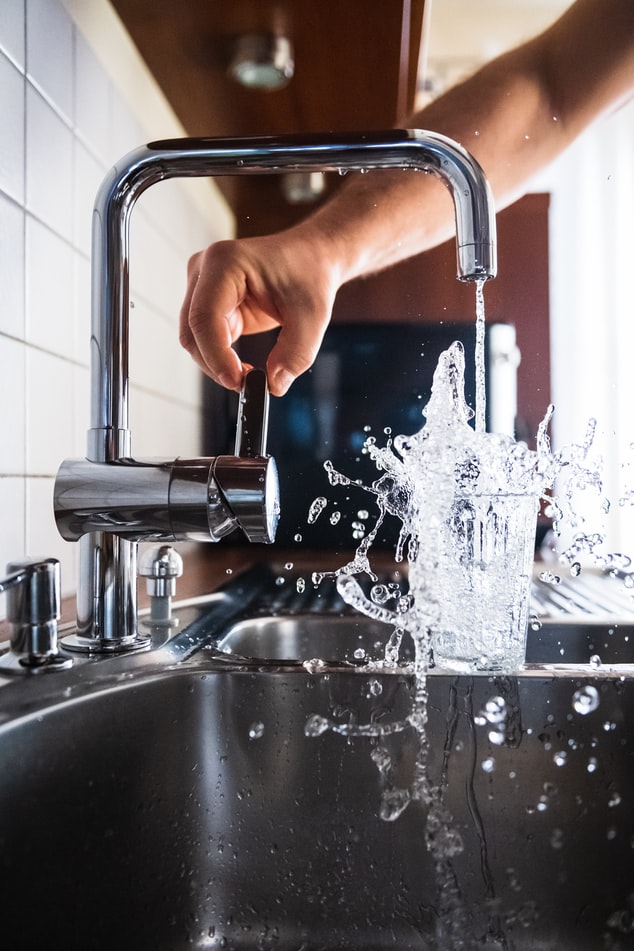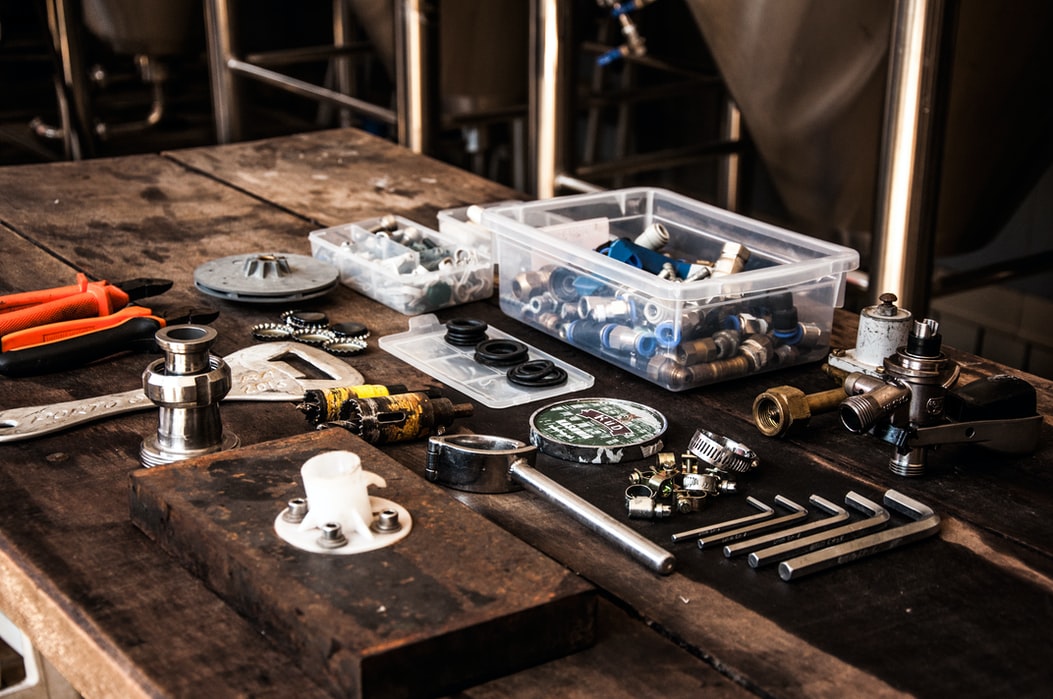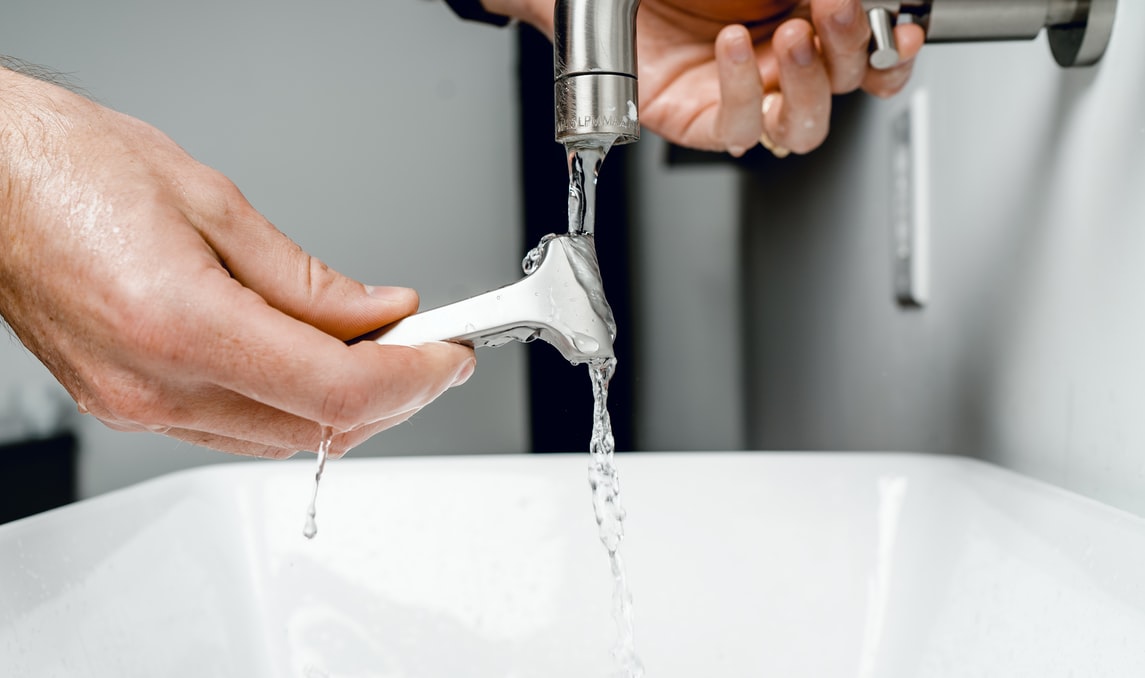Going green and environmentally friendly is currently the hottest lifestyle trend in many cities around the world!
 Photos by: Unsplash
Photos by: Unsplash
It's not just about denying plastic straws, shopping with reusable bags, and buying products with recyclable packaging, however. As a conscious lifestyle choice, eco-friendly living starts at home, where you can reduce the waste you produce and the resources you use, especially when it comes to basic needs like water. But is it enough to turn off the taps when not in use or detect leaks early enough to restore efficient and responsible water use?
What is green plumbing?
Green plumbing techniques can help save significant amounts of the water we use at home every day. This includes making changes to your home's plumbing system to reduce wastewater from plumbing fixtures and encourage sustainable consumption – one that will ensure a stable water supply for future generations who will also need this vital resource. From opting for eco-friendly faucets to setting up a gray water system, plumbers recommend switching to eco-friendly plumbing methods to save water, reduce waste, and even lower your monthly utility bills. This is a win for both you and the planet – just enough, budget-friendly water consumption and long-term, sustainable use of plumbing fixtures. Here's how you can go green with your home's plumbing system:
Switch to green, energy-saving pipes
Unless you're a plumber, you probably don't know much about the materials used in pipes – and which ones have the greatest impact on the environment. However, it is time to pay attention to what our pipes are made of and why it is important that they are made from sustainable materials. Plumbers often adjust plumbing systems for private homes with pipes made of hard plastic such as PVC. While these pipes are efficient, they are difficult and expensive to recycle, which often leads to overcrowded landfills. Iron and copper pipes, on the other hand, can be more environmentally friendly, but they also require more energy to be produced. Instead, ask your plumber to install pipes made of polyethylene and polypropylene, as these require less energy to manufacture but are just as easily recyclable. Your plumber can also insulate hot water pipes to reduce heat loss while hot water flows to reduce energy consumption.
Set up gray water systems
Gray water or sewage usually flows into the main sewer after washing the dishes or the shower and mixes with contaminated water. And while this water can be "reused" after treatment at your local processing facility, it requires a lot of energy. Instead, you can recycle gray water at home first. A professional plumber can install a gray water treatment system to recycle wastewater from your daily activities for watering plants and grass outside your home. This will reduce your consumption of clean water, especially if sprinkler systems use a lot to water entire lawns and backyards.
Maximize the home technology in your plumbing system
Today's homes are smart – from smart thermostats to motion-sensitive lights that can be controlled with a voice assistant, and we already rely on many home technologies from your smartphone. So why not maximize their usage to include your plumbing system? Touchless or motion sensor faucets will help you save water and reduce monthly utility bills. Because they only run when your hands are under the spout, the faucet is less likely to run when not in use. Not only do you lower your monthly bills, but you also eliminate the risk of overflow and water damage.

Check the outdoor installations for leaks
Most homeowners notice leaks in interior fittings, especially in high traffic areas such as the kitchen and laundry room. But outdoor plumbing, like sprinklers, is also prone to leaks, which often go undetected until bills skyrocket or cause massive plumbing emergencies. To prevent this from happening, make the inspection of outdoor installations a part of your daily routine. Check the water meter regularly to monitor consumption. A sudden increase in your household's water usage without any noticeable increase is a tell-tale sign of a leak. This is because even when spills start out small, they can waste up to 15 gallons of water each day. A professional plumber can easily locate and repair hard-to-find leaks, such as: B. those occurring in underground, hidden or outdoor facilities.
Upgrade to instantaneous water heater
Who doesn't love a hot shower? Water heaters go a long way towards your overall comfort, but heating bills can easily pile up. While most households rely on traditional tank water heaters, tankless models are becoming increasingly popular because of their energy-efficient function. Installing a tankless water heater practically pays off in terms of lower energy costs and a longer service life. In addition, there is the additional advantage of less maintenance and less storage space – an overall benefit for homeowners everywhere who need a reliable hot water supply for effective cleaning and comfortable showers.
Install low flow shower heads and faucet aerators
You may not notice it, but the type of shower heads and faucets used will also determine the water consumption – it can be higher or lower than desired simply due to the volume of water they are simultaneously delivering. Have a professional plumber convert your home to low flow faucets. With these new shower heads and faucets, you can reduce excess water by 50% as the water flow is significantly reduced. But don't worry – this doesn't mean there will be less water flowing through your home to clean and shower thoroughly. Low flow faucets maintain high water pressure but reduce wastage of running water.
Switch to low flow, dual flush toilets
Similar to low flow shower heads and faucet aerators, low flow, double flush toilets maintain high water pressure and reduce water flow to conserve water. These new and improved toilets use only half the typical amount of water that conventional toilet models use to rinse waste. They do this by using varying amounts of water to flush liquid and solid waste, and connecting to wider drains to reduce the risk of clogging the toilet.
Use a front loading washing machine
The invention of washing machines has done a lot to make washing days far more convenient. However, depending on the type of washing machine used, the tradeoff may be higher water consumption. But how old is your washing machine anyway? It's time to consider upgrading to a front loading washer. Front loading washing machines are equipped with sprayers that use less water to wash clothes effectively, resulting in lower utility bills. Combined with their Energy Star rating, they can pay for themselves in no time due to their energy savings and reduced water consumption.

Take shorter showers
Good personal hygiene requires regular showers, but do you know how much water each shower uses? The average shower uses approximately 5 gallons of water per minute. That's a lot, of course, and it's lost, especially if you're the type to run the water or stand under it while staring into space. That doesn't mean you should sacrifice good hygiene – use water responsibly. Start by timing your showers save waterand turn off the shower while soaking to reduce the wastewater created when you don't need clean running water.
Install hot water circulation pumps
Hot water is a necessity, but also an expensive commodity over time. Instead, talk to your installer about installing a circulation pump. This offsets the hot water consumption in your home and reduces wastewater by simply flowing hot water through the pipes when not in use. With circulation pumps, you can heat water as required, which reduces both water and energy consumption and ensures efficient use of hot water.
Greener plumbing isn't just a trend – it's the new, responsible normal
Green plumbing is the future of responsible water use and protection – and starts in your home. When combined with responsible daily habits like taking shorter showers and checking for leaks, installing eco-friendly faucets at home can go a long way in promoting sustainable water use and paving the way for a better, greener planet.
Not sure where to start? With the Help from a plumberYou can install water recycling systems and energy-efficient plumbing, and maintain your home's plumbing system to ensure long-term, sustainable function and less wastewater production.




